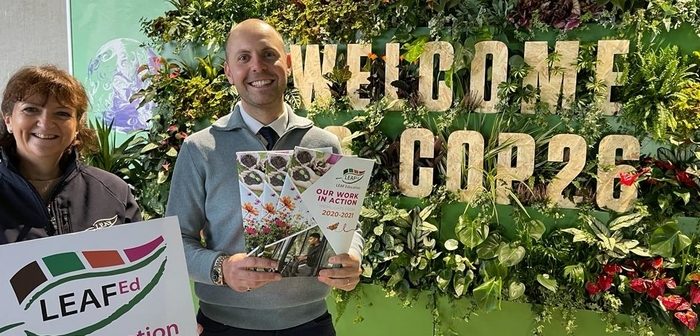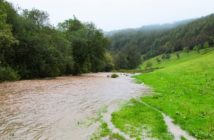Leading farming education organisation, LEAF Education has recorded its highest levels of engagement to date, with a five-fold increase in the number of young people it has worked with over the past year – according to its latest Impacts Report.
In the last academic year, LEAF Education has directly engaged with 74,044 students (aged 4 – 18 years), across 63,000 hours and has reached over a million on social media. The results show the significant impact it is having on educating and inspiring young people about food production, farming and the environment through experiential on-farm experiences The report also highlights the steps LEAF Education, which is part of leading sustainable farming organisation LEAF (Linking Environment And Farming), is taking to raise awareness of the many varied and exciting career opportunities in the agricultural sector.
Other highlights from the report include:
- More than 36% of students who have participated in the National Food, Farming and Environment Competition went on to study at land-based colleges
- Farming Fortnight, which returned for a third year (7th– 18th June 2021) saw more than 208,000 views of its resources and 3,335 downloads of its resources from the Countryside Classroom website
- LEAF Education Regional Education Consultants (RECs) trained 1,017 teachers across 1,950 hours, with 100% of teachers saying they enjoyed the experience and would recommend LEAF Education CPD sessions to colleagues
- LEAF Education was a lead partner in a pioneering initiative for trainee healthcare professionals (Sustainable Healthcare for our Future), to increase their understanding of more sustainable farming and nutrition. Sixty-three trainee medics participated in two virtual and on-farm training workshops, with 100% reporting that the training had increased their understanding of the connections between health and food production.
LEAF Education Director of Education and Public Engagement, Carl Edwards, explained: “Farming provides an incredibly exciting way to tap into young people’s growing interest in more sustainable diets and climate change. Working with teachers, students and farmers at a grass roots level, we are seeing a significant increase in the demand for our services. Learning how more sustainable food production and maintenance and enhancement of the environment go hand in hand, is critical in order to equip future generations with the knowledge and skills to help achieve net zero ambitions.
The achievements outlined in this report show the impacts of taking young people out of the classroom and applying learning to real life situations, through hands-on experiential opportunities. Overwhelmingly, the message of this report is one of transformation and positive change.
As a leading farming education organisation, we are incredibly proud to hold such a critical role in educating the consumers of the future about where their food comes from, the people that produce it and more sustainable diets.”
Provides networking opportunities
In addition to working with young people, LEAF Education also provides farmers with networking opportunities, resources and training on working with schools. This year, RECs have supported 167 farmers over 400 hours delivering a programme of face-to-face and online training courses. Find out more here: www.leaf.eco/access-to-farms
LEAF Education uses food production and farming as a vehicle to support schools in delivering national curriculum and exam specifications. Its educational initiatives include farm visits, the National Food, Farming and Environment Competition, Farmer Time and Farming Fortnight. It also has a growing network of LEAF Education Demonstration Schools, set us as best practice examples of using farming and food production as part of a broad and balanced curriculum. LEAF Education is the lead partner in Countryside Classroom, the farming industry’s online portal for teachers offering resources, places to visit and school support relating to food, farming and the natural environment.
For more information about LEAF Education, click here and to download the LEAF Education Impacts Report, click here.




